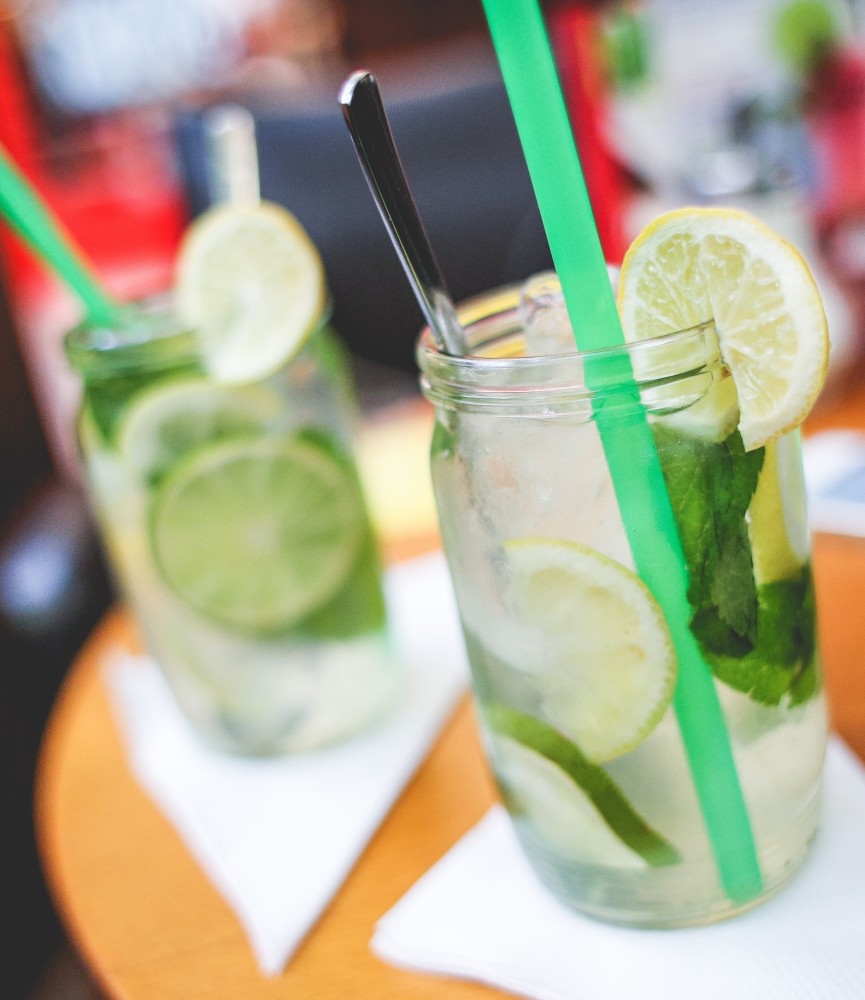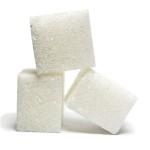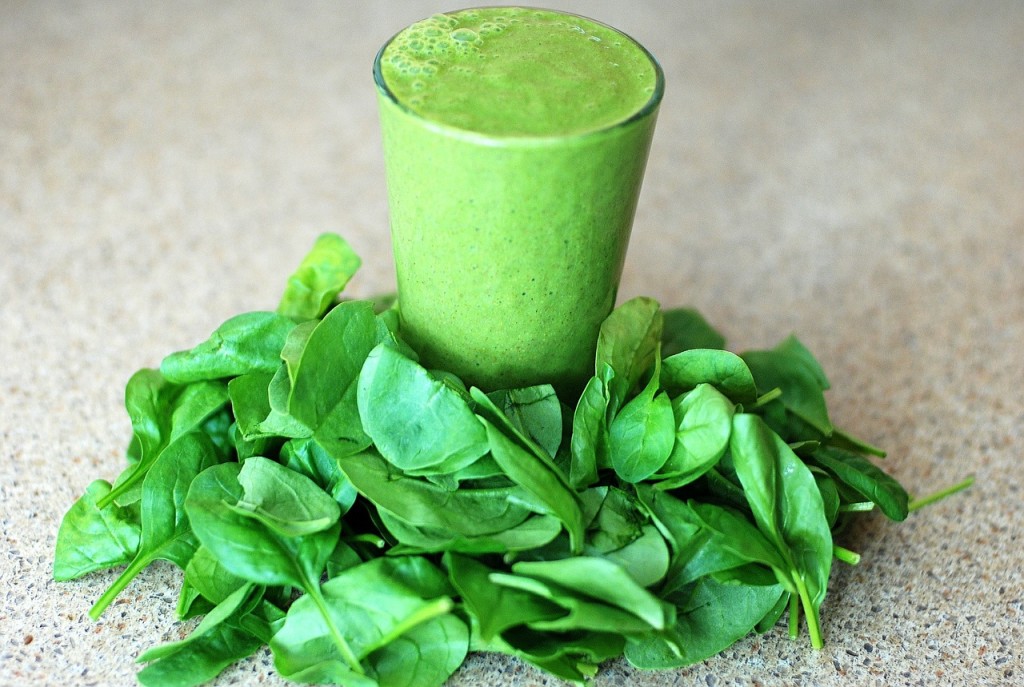 When it comes to nutrition, it seems that the truth just doesn’t sell.
When it comes to nutrition, it seems that the truth just doesn’t sell.
As a dietitian, I spend a lot of time debunking nutrition myths, which range from the partly true to the completely ridiculous. While some of these can admittedly be entertaining, it’s also frustrating that so many people are being given inaccurate nutrition information which they believe, and even follow, for years to come. I hate to think how much time and effort is wasted because of some of these myths. So I’m busting a few of my favourites once and for all:
 1. A glass of water with lemon in the morning ‘aids digestion/detoxes the liver’
1. A glass of water with lemon in the morning ‘aids digestion/detoxes the liver’
A glass of water first thing in the morning is great, and adding some lemon or other fruit can certainly make it easier to drink. However, there’s nothing magical about the addition of lemon.
Lemon is an excellent source of vitamin C which does have lots of health benefits but you’re likely to be better off having a handful of strawberries on your cereal, some tomato with your eggs or even just an orange. Lemon juice can also damage tooth enamel when it’s in direct contact with teeth. So if you do love your lemon water first thing in the morning, make sure you have a plain glass of water afterwards.
2. Eating six meals a day boosts your metabolism
Eating regular meals can be a great way to keep energy levels high. It also helps to prevent you getting so hungry you inhale the first thing you see as you walk in the door at night. But it doesn’t speed up your metabolism.
If eating 5-6 small meals per day works for you – go for it. If not, stick to three and rest assured you’re not doing your metabolism any damage. There are enough items on your to do list without having to constantly be planning your next meal.
 3. Skim milk has more sugar than full fat milk
3. Skim milk has more sugar than full fat milk
People often tell me that they don’t drink skim milk because of the added sugar. Plain skim milk does not have sugar added to it. It can be slightly higher in natural sugar (lactose) because the fat has been removed and it may also taste a bit sweeter because the fat isn’t there to round out the flavor, but no sugar is added in (unless it’s a flavoured milk, which is a different story altogether). Go for full fat milk if you prefer, but don’t make the mistake of thinking you’re consuming less sugar that way.
4. You need to drink 2.5 L water per day to stay hydrated
We do need around 2.5L of fluid per day to stay hydrated. However, this includes all of the fluid we consume, such as tea, coffee and all the fluid in the food we eat (of which there is a surprising amount – for example cooked rice is at least 50% water!). Good old water is of course the best source of fluid and is preferable to other drinks but we don’t need to be chugging down litres of it each day to stay hydrated.
 5. Spinach is a good source of iron
5. Spinach is a good source of iron
This one is actually partly true – spinach is high in iron compared to most other vegetables. But unfortunately it is also high in oxalic acid, which binds to the iron so that our bodies end up absorbing much less of it.
If you’re relying on vegetarian sources of iron such as spinach, there’s is a way around this problem. Vitamin C helps our bodies to absorb iron from plant sources, so have your spinach with a food which is high in vitamin C such as some tomato, capsicum, broccoli, lemon juice and chilli or a even a small glass of orange juice.
And a bonus one:
 6. Eating late at night causes weight gain
6. Eating late at night causes weight gain
Food does not become magically ‘fattening’ once the sun sets, nor are carbs more likely to make you pack on the kilos if you eat them at night.
Many myths are based on a grain of truth, and the reason why this myth exists is likely to be simply that many people overeat at night. A lot of us are in the habit of eating our largest meal at night, and we tend to be really hungry by the time dinner rolls around so it’s easy to overeat. Plus, getting stuck into a block of chocolate while sitting in front of the TV after a tiring day at work can be very tempting.
If you do tend to overeat at night, make sure you’re eating regularly during the day so that you’re not starving at nighttime. And be conscious of why you’re eating – are you actually hungry or just eating because you’re bored, stressed or wanting to avoid doing something? Learning to check in with your appetite and listen to your body is one of the best thing you can do for your long term health.
Want more nutrition tips? Sign Up Here
Leave a Reply